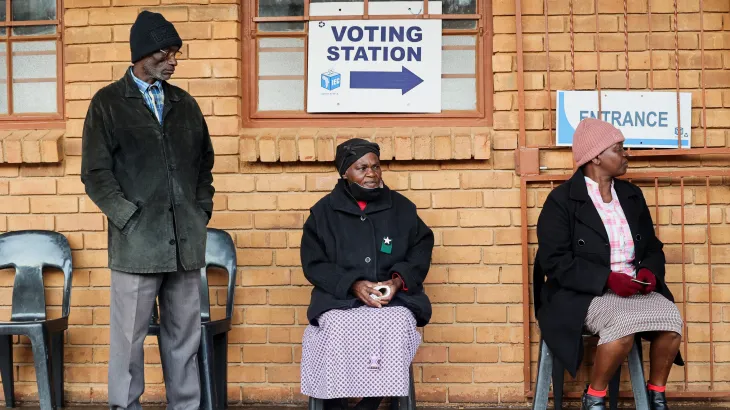South Africans embarked on a significant electoral journey on Wednesday, as polling stations across the nation welcomed voters in what is being hailed as the most crucial election in three decades. The outcome of this election has the potential to redefine the trajectory of the young democracy, with implications reaching far beyond the nation’s borders.
At the heart of this electoral contest lies the African National Congress (ANC), the political powerhouse that steered South Africa away from the shackles of apartheid’s oppressive regime in 1994. However, the ANC now finds itself confronting a tide of discontent among a new generation of voters, grappling with deep-rooted socioeconomic challenges that continue to afflict the nation.
With half of South Africa’s 62 million citizens estimated to be living below the poverty line, and an alarming unemployment rate hovering at 32%, the ANC’s longstanding promise of a better life for all is under intense scrutiny. Despite securing victory in six consecutive national elections, recent polls indicate a decline in support for the ANC, with projections suggesting a potential loss of its parliamentary majority for the first time in history.
President Cyril Ramaphosa, at the helm of the ANC, has pledged reform, acknowledging the pressing need for improvement. However, the ANC’s grip on power is facing unprecedented scrutiny, with the prospect of coalition governance looming on the horizon should the party fail to secure a decisive mandate.
Against this backdrop, the electoral landscape is marked by a surge of opposition fervor, albeit fragmented. While traditional opposition parties such as the Democratic Alliance and the Economic Freedom Fighters are not expected to pose a significant threat to the ANC’s dominance, the emergence of numerous new parties underscores a growing disillusionment with the status quo.
The electoral process, spanning South Africa’s nine provinces and encompassing over 23,000 polling stations, is a testament to the nation’s commitment to democratic principles. As citizens cast their ballots, the legacy of apartheid and the hard-fought battle for enfranchisement remain poignant reminders of South Africa’s journey toward inclusivity and equality.
Ramaphosa’s appeal for unity and progress resonates amidst a backdrop of political upheaval and economic uncertainty. While the ANC’s historical significance cannot be understated, the evolving political landscape reflects a diverse array of voices and aspirations, embodying the spirit of Nelson Mandela’s vision of a Rainbow Nation.
As the electoral process unfolds, South Africa stands at a crossroads, poised to shape its future trajectory amidst the complexities of its past. With final results expected in the coming days, the outcome of this election will reverberate not only within the borders of the nation but across the global stage, as a beacon of democracy in a changing world.

